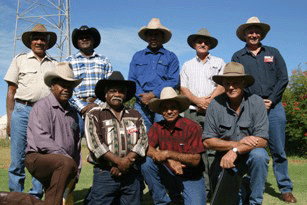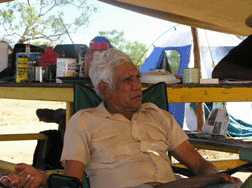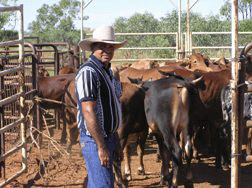Northern Indigenous Pastoral Alliance (NIPA)



At the Yawuru trading floor in May 2004, an exciting new partnership was announced between the Kimberley Aboriginal Pastoralists Assn (KAPA) and the Northern Cattle Alliance (NCA) from Cape York. The Northern Indigenous Pastoral Alliance (NIPA), as the partnership is known, will, among other things, develop a franchise business model for IPEs.
NIPA believes that the franchise model can deliver the possibility of sustainable IPEs by providing all key stakeholders with the incentives, skills and mentoring necessary to direct and manage indigenous cattle enterprises.
The primary purpose and benefit of the franchising model is to address problems by providing a business oriented framework that has clear rules and guidelines to both protect and benefit all stakeholders. Franchising is not a business itself, but a way of doing business. Hence it can be adapted to benefit community owned enterprises such as IPEs in a way which complements the interests of the community as a whole. The model is a comprehensive system for the conduct of the business, including such elements as business planning, financial control, management systems, marketing, and quality.
An explanation of the franchising concept is set out in Peter McEntees paper Strengthening Land Community and Enterprise at http://www.isx.org.au/projects/1082448615_30570.html.
At the Yawuru trading floor, NIPA was successful in gaining a $15,000 innovation grant from the Brotherhood of St Lawrence to further develop the franchise model, with the aim of having pilot franchises operating in the Kimberley and Cape within 12 months.
NIPA now wishes to set up a working group to steer the project for the next 1-2 years, overseeing the use of the BSL innovation grant and obtaining further funding. We are looking in particular, for persons and organisations with extensive networks and experience in:
. management and operation of large pastoral
businesses,
. business management,
. financial management,
. land management,
. a committment to Indigenous economic
development.
franchise business model for Indigenous owned pastoral enterprises (IPEs).
